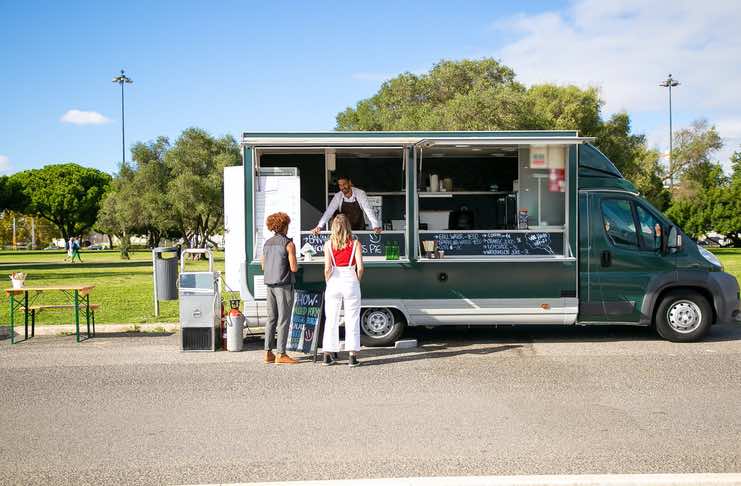The food truck industry has been growing steadily over the past few years, and many entrepreneurs are taking notice. Starting a food truck business can be a great way to enter the food industry without the high overhead costs of a brick-and-mortar restaurant. However, once you’ve established a successful food truck business, you may want to consider expanding and creating a food truck fleet. Here are some tips and strategies for expanding your food truck business and creating a successful food truck fleet.
1. Develop a Solid Business Plan
Before you start thinking about expansion, it’s essential to develop a solid business plan. Your business plan should outline your goals, target market, financial projections, and marketing strategies. You can even dot the number of food trucks you wish to have in 5 years on your food truck fleet. It should also detail the logistics of expanding your business, such as acquiring new trucks, hiring staff, and securing permits and licenses. A well-thought-out business plan is crucial for attracting investors and obtaining financing for your expansion.
Here’s a great video you should watch about how to write a food truck business plan:
2. Create a Brand Identity
Creating a strong brand identity is essential for any food truck business, but it’s even more critical when you’re expanding your business. Your brand identity should reflect your unique concept, values, and personality. Develop a catchy name and logo that customers will remember. Create a consistent brand image across all your trucks, marketing materials, and social media platforms.
3. Invest in High-Quality Trucks and Equipment
Investing in high-quality trucks is essential for creating a successful food truck fleet. Your trucks should be durable, efficient, and equipped with all the necessary equipment to prepare and serve your food. You may want to consider purchasing pre-built trucks or customizing your trucks to suit your specific needs. Make sure your trucks meet all local regulations and safety standards.
Having a high-quality fleet of food trucks requires substantial financial investment. Everything from the vehicle itself to the stove and refrigerator inside. It’s important to invest in sturdy tools that can withstand regular use.
Size, usefulness, and user-friendliness are all essential considerations when purchasing machinery. The menu items you plan to serve are another factor to think about when deciding which appliances to purchase.
4. Hire the Right Staff
Hiring the right staff is crucial for the success of your food truck fleet. You need a team of dedicated, hardworking employees who share your passion for food and customer service. Make sure to hire individuals who have experience working in the food industry and can handle the demands of a fast-paced food truck environment. Train your staff to provide excellent customer service and work efficiently in a limited space.
Watch this video to learn some useful tips on the hiring process:
5. Expand Your Menu
Expanding your menu is an excellent way to attract new customers and keep your regulars interested. Consider adding new dishes or rotating your menu seasonally to take advantage of fresh, local ingredients. You may also want to consider offering special deals or discounts to encourage customers to try new items on your menu.
6. Develop a Catering Program
Offering catering services is an excellent way to expand your business and reach new customers. Develop a catering program that includes a separate menu and pricing structure for larger events. Invest in high-quality catering equipment, such as chafing dishes and serving platters. Make sure to market your catering services to local businesses, schools, and event planners.
Watch this video to learn more tips on going into Catering:
7. Build Relationships with Local Businesses
Building relationships with local businesses can help you expand your customer base and generate more revenue. Partner with nearby offices, schools, and community centers to offer special deals or discounts to their employees or members. You may also want to consider setting up a regular schedule at these locations to create a loyal customer base.
8. Utilize Social Media
Social media is a powerful tool for expanding your food truck fleet. Use platforms like Instagram, Facebook, and Twitter to promote your business, showcase your menu, and announce your locations. Post regularly, engage with your followers, and use hashtags to reach a broader audience. You may also want to consider partnering with local influencers or bloggers to promote your business.
9. Participate in Food Festivals and Events
Participating in food festivals and events is an excellent way to get your brand in front of a large audience. Look for local food festivals and events that align with your brand and target market.
Watch this video to learn about the key food events:
10. Stay Flexible and Adaptable
It’s essential to be adaptable and open in the food truck business because the industry is always changing. Keeping up with client preferences and industry shifts means modifying both your menu and vehicle layout. To attract more consumers, you should also be open to trying out different venues and activities.
It’s crucial to weigh the costs and gains of making adjustments to a new situation. In addition, you need a method for trying out novel concepts and gauging their efficacy.
Follow these steps and you’ll have more chances in expanding your business and creating a food truck fleet.
Fallon Chan is a food and lifestyle photographer and blogger.
